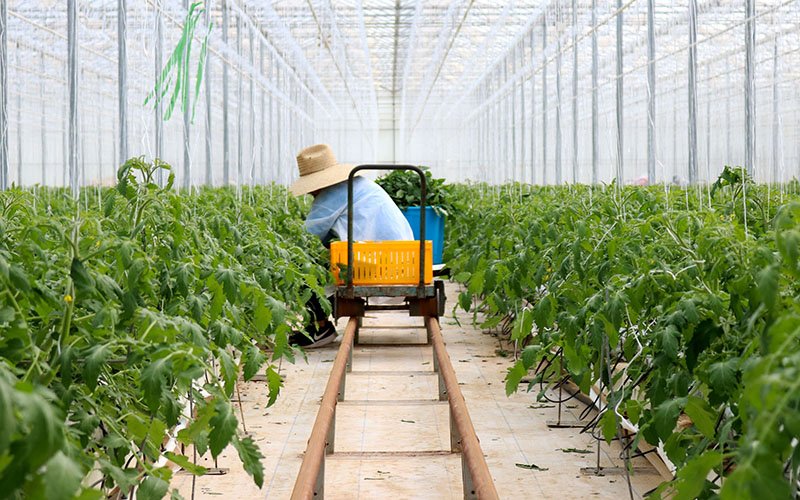The first in a series of stories from Cronkite News addresses farmworkers’ working conditions during the pandemic. While industry representatives say farms are trying to protect their employees, advocates argue that workers have been kept in the dark about positive COVID-19 cases and not been provided with adequate protections.
This article was produced with support from a Theology Program grant to Arizona State University’s Center for the Study of Religion and Conflict.
Bertha spent 17 days in her bedroom after testing positive for COVID-19.
There, she made the soup and the “hot, hot tea” that helped her endure the headaches and coughing fits associated with the contagious respiratory disease. Bertha, an agricultural worker, said she couldn’t risk going to the kitchen or other parts of the house and infecting her 18-year-old daughter.
The two-plus weeks of isolation seem to have paid off: Her doctor recently cleared her to resume normal activities, Bertha said, and her daughter was never infected. But Bertha worries that if she returns to work processing pistachios for Primex Farms LLC – a California-based grower and exporter of nuts and dried fruits – she will bring the virus home again.
Bertha, who agreed to speak on the condition her last name not be published for fear of retaliation, said she doesn’t know whether she can trust the company’s attempts at disinfecting the space and implementing safety measures. Even before she tested positive, she thought the farm’s safety precautions were insufficient.
From a lack of social distancing in dining areas to employees handling pistachios without gloves, she estimates “many pounds” of pistachios passed through the hands of workers infected with COVID-19.
As of early July, 87 workers and 58 family members, 23 of them children, had tested positive for the novel coronavirus that causes COVID-19, according to data compiled by United Farm Workers, a labor union. Many more are awaiting results.
“I don’t want to go back,” Bertha said. She feels she has only two options: Accept the working conditions, or quit.
The pandemic has forced agricultural workers throughout the Southwest to make a similar choice between their health and their incomes. Though industry representatives say farms are doing everything they can do to protect their employees, worker advocates argue a lack of industry protections – and the “invisibility” of much of the work done by day laborers – have made farmworkers especially vulnerable to exploitation.
“It just shows the contradiction in calling somebody an ‘essential worker’ but only for what you need them for, not to care for them as human beings that also are afraid of getting sick,” said Juanita Valdez-Cox, a migrant-rights advocate in Texas.





